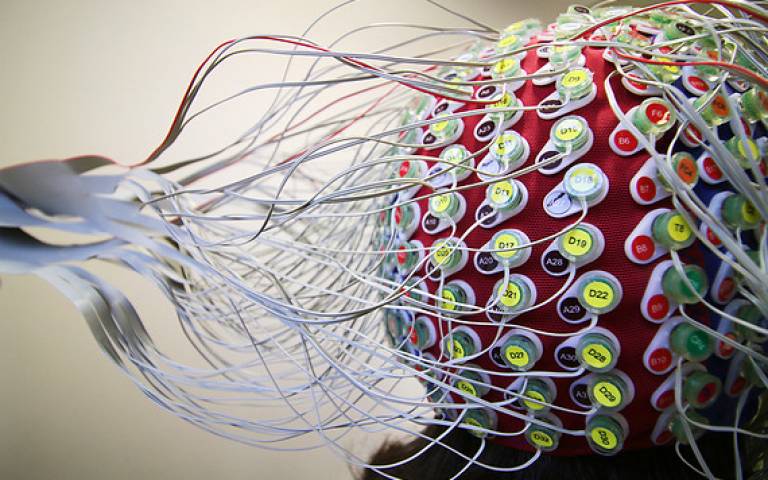Brain wave recordings could reveal the cause of catatonia
18 January 2023
EEG recordings of brain waves could help clinicians treating catatonia make better decisions about treatment, following a study by UCL researchers.

The researchers from UCL Psychiatry show how EEG recordings of brain waves can accurately determine the cause of catatonia, a state in which someone is awake but does not seem to respond to other people and their environment.
Determining whether catatonia is due to a medical or psychiatric cause is clinically challenging, but it is vital for helping clinicians to decide on a course of treatment.
The study was a review of peer-reviewed journals reporting accuracy for diagnostic tests using EEG in determining the causes of catatonia.
The researchers behind the investigation believe it is the first systematic review to examine the diagnostic test accuracy of the EEG in catatonia.
More than 700 patients were included in the 355 studies reviewed as part of the investigation. The investigation showed the performance of the EEG in catatonia was excellent and found consistently across most studies.
The investigation also revealed that a significant minority of patients with a supposed psychiatric cause for their catatonia have an abnormal EEG, most commonly with features of encephalopathy – which usually signifies a medical cause. The researchers described this finding as “surprising and intriguing”.
The researchers concluded that the findings and other literature suggest that the EEG should be used as part of a diagnostic work-up for catatonia in cases where the cause is unclear. But they added that should not be the only piece of evidence used in making a diagnosis.
Dr Jonathan Rogers of UCL’s Division of Psychiatry said: “Catatonia can be due to many different conditions, but it’s often really hard for a patient who has catatonia to explain what is going on. Our paper shows that examining a person’s brain waves can be helpful in untangling this uncertainty, which is likely to be useful for clinicians when considering the right treatment to give.”
Related:
- The role of the electroencephalogram (EEG) in determining the aetiology of catatonia: a systematic review and meta-analysis of diagnostic test accuracy
- Dr Jonathan Rogers' academic profile
- UCL Division of Psychiatry
- UCL Institute of Mental Health
 Close
Close

